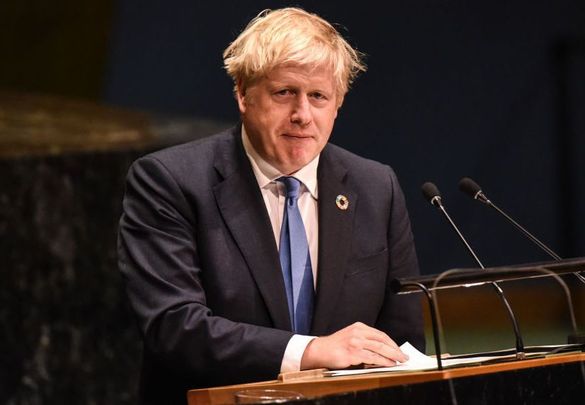British Prime Minister Boris Johnson has rejected an olive branch from Brussels chiefs designed to restart failing Brexit talks in time to prevent no deal in trade before the U.K. leaves the EU at the end of the year.
*Editor's Note: This column first appeared in the October 21 edition of the Irish Voice newspaper, sister publication to IrishCentral.
Following several days in which both sides blamed the other for stumbled negotiations, some light appeared on Monday when U.K. Cabinet Minister Michael Gove praised a “constructive move” by the EU.
But within minutes of his declaration in the House of Commons, he declared the talks “effectively ended.”
This was followed by a statement from Johnson’s office that the U.K. continues to believe there is no basis to resume talks unless there is a fundamental change of approach from the EU.
The knockback means the Brexit standoff continues, with fears for a successful resolution to issues on the border between Northern Ireland and the Republic.
The British government has already said it is prepared to breach international law protecting the Northern Ireland peace process and ensure there is no hard border when Britain leaves the EU.
As the war of words continues, with time rapidly running out, a series of blistering speeches in the House of Lords on Monday denounced Britain’s plan to renege on parts of the Brexit withdrawal agreement as an assault on the rule of law.
Igor Judge, a former chief justice of England and Wales, said the U.K.’s proposed Internal Market Bill would undermine the rule of law and damage Britain’s reputation.
He told the Lords, “We hope that one day, all the countries in the world that do not have respect for the rule of law will have it. Yet here we are, about to tear it into tatters.”
The bill, which passed all its stages in the House of Commons last month, gives ministers the power to break international law by setting aside the Brexit withdrawal agreement to determine unilaterally how parts of the Northern Ireland protocol should be implemented.
Johnson’s government saw off a Conservative backbench rebellion in the Commons by promising MPs a vote before the treaty-breaking clauses are triggered.
But former Conservative leader Michael Howard, now Lord Howard, a leading Brexiteer, said he would vote against the clauses.
He said, “I want the United Kingdom to be an independent sovereign state. However, I want it to be an independent sovereign state that holds its head up high in the world, that keeps its word, that upholds the rule of law, and that honors its treaty obligations…I do not want it to be an independent sovereign state that chooses as one of the first assertions of that sovereignty to break its word, to break the law and to renege on a treaty that it signed barely a year ago.”




Comments